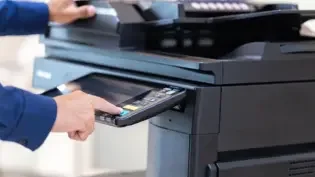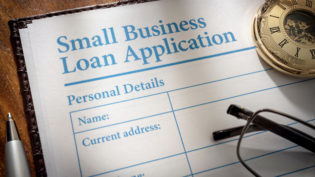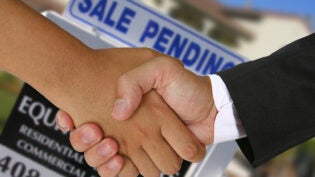Home > Finance > Working with Lenders >
Protecting Your Business from Credit Reporting Errors
By: SmallBizClub

Access to business capital is critical for small business owners. Many times, a small business loan is the only way available to help grow or sustain an existing small business. Given the importance of a strong credit rating to a small business owner, any possible error that might occur on a business’s credit report might have a devastating effect on that business’s future prospects. While it is incumbent on the business owner to stay up to date with their business’s financial situation, credit reporting errors can sneak up and create problems at the most inopportune times.
Related Article: How to Build Credit as a Small Business Owner
Unreliable Nature of Credit Reporting
The business world has been indoctrinated to believe that information provided by credit reporting bureaus is infallible. According to the Wall Street Journal, almost 25% of the small business owners who actually checked their business’s credit reports found at least one significant reporting error. Imagine the embarrassment of being a business owner sitting in front of your banker asking for the funds necessary to grow a successful business. The banker comes back and says they can’t help you because your business credit report is problematic. Ouch! The reality is that credit reports and the bureaus that provide them are only as reliable as the information they receive and record.
The Problems Created By Erroneous Credit Reports
The “Fair Credit and Reporting Act” was designed to protect individuals against reporting issues, but offers no such protection for businesses. Because of this, the process of initiating disputes with credit reporting bureaus is more difficult. This creates several issues for small business owners, including:
- Having no legal recourse against reporting bureaus for non-compliance and follow through.
- Dunn and Bradstreet uses this erroneous information to rate your company for others to see.
- Anytime your business’s information is viewed, there is no obligation for the inquiry to be reported
It doesn’t take a genius to see how quickly this can become a catastrophe for a small business.
How to Prevent the Effects of Credit Reporting Errors
Awareness is the best possible solution for preventing the unwanted effects of a bad credit report on your business. If you are a small business owner, it would be a prudent investment to subscribe to receive constant updates on your business from credit reporting bureaus. You can also use companies such as the aforementioned Dunn & Bradstreet to see what others are seeing when they investigate your company. If you closely monitor your business’s credit report, you might stand a better chance of catching errors while they are still minor in nature.
Type of Reporting Errors
It is important for small business owners to be aware of how credit reporting bureaus work and what kinds of information they collect and disperse. With so many hands in the cookie jar, errors are easy to make and difficult to detect. Here are some of the key errors that small business owners might encounter.
1. Identity Error – No matter how creative a business name might be, there are many variations that can be close enough to create mistakes. When merchants or lenders issue information to credit bureaus, the potential for misspellings, wrong addresses and phone numbers and duplicate business names is significant. Once a record has been received by a credit bureau for a business, they make little effort to confirm the information. Since all credit reporting bureaus are autonomous, there is no cross checking involved. These types of error might seem small in nature, but can blossom to epic status in a flash.
2. Incorrect Financial Details – Much like individual credit reporting, credit ratings for businesses are calculated using a bevy of financial information that is provided by lenders and merchants. Any incorrect dollar amounts can create a distorted view of a business’s credit-worthiness. Common financial reporting errors include incorrect approved/available credit amounts, incorrect payment amounts, incorrect balances or financial details offered based on an incorrect account number. These types of errors are inadvertent, but can devastate your company’s ability to do business.
3. Fraud – Identity theft is just as dangerous for businesses as it is for individuals. If criminals can get a hold of your business’s taxpayer identification number, plus the proper address and phone number, they may have the ability to transact business under your company’s name without you being aware of it. Criminals are sophisticated these days and go to great lengths to capitalize on having access to someone’s business details. Once they have your information and start accumulating loans or buying goods on credit, the task of clearing up these type of issues is difficult and time-consuming. It can cause you as a business owner to suspend operations until things have been fixed.
You don’t have to let your business suffer from credit reporting errors. As a business owner, you should do everything in your power to protect your business and it credit-worthiness. You should monitor your business’s credit reports on a regular basis and waste no time communicating with the bureaus regarding disputes. In all likelihood, your business will encounter a problem at some point in time. Through awareness and quick responses, you should be able to minimize the damage done to your company’s credit.
Author: Brad Smith is CEO and co-founder of Rescue One Financial, headquartered in Irvine, California. Rescue One Financial helps individuals resolve unsecured debt during troubling times and have settled over $3.1B in debt. Brad’s 18-year financial services career includes Wall Street with Merrill Lynch, where he helped pioneer the restricted stock diversification business at Morgan Stanley. Smith still holds all of his licenses today (Series 7, 31, 63, and 65). Brad blogs twice per week on the Rescue One Financial web site, has authored a number of published articles, and is a regular guest contributor to US-based radio and television financial programs. Brad holds a BA in Economics from the University of Southern California.
Published: February 3, 2015
3012 Views
3012 Views












